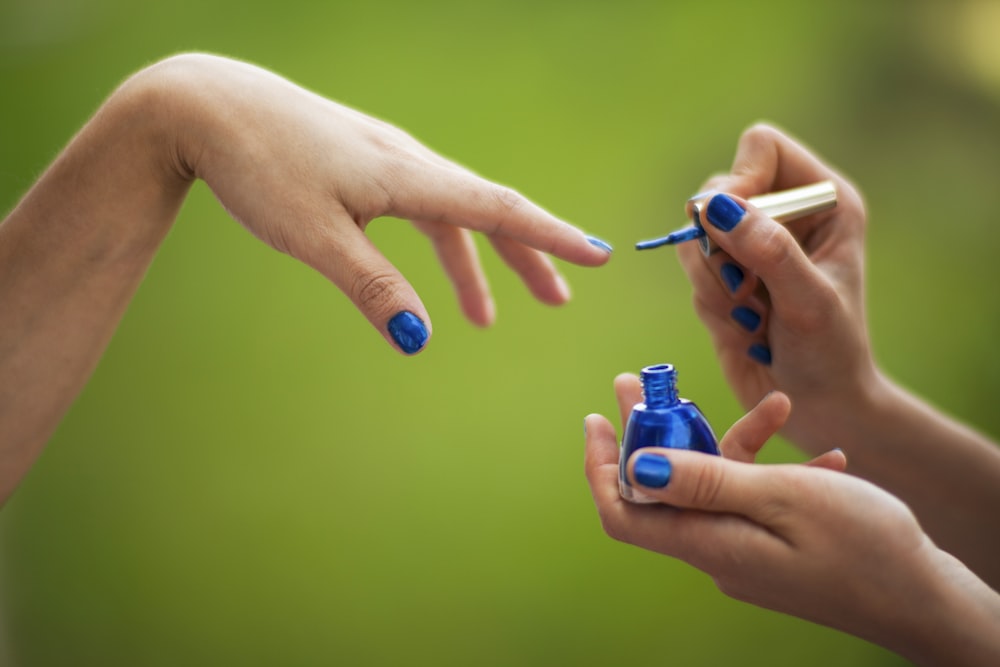Are you someone who has a bad habit of biting their nails? You’re not alone. Millions of people across the world suffer from this common problem. It can be an extremely frustrating and embarrassing behavior to have, so it’s natural to want to find ways to stop yourself once and for all. Thankfully, there are numerous solutions out there that might help break your nail-biting habit. Let’s explore them all!
Understand the physical and emotional triggers
The first step in breaking the nail-biting habit is understanding your triggers. These could be physical triggers, like the presence of hangnails, or emotional triggers, such as stress, boredom, or anxiety. Many individuals resort to nail biting as a subconscious coping mechanism during tense situations. When you identify these triggers, you can start to develop strategies to manage them more effectively, replacing the harmful behavior of nail biting with healthier alternatives like deep breathing or fidget toys.
Develop an awareness
Nail biting is a habit that can be hard to break. Most of the time, people don’t even realize they’re doing it until it’s too late. However, developing an awareness can help you to break the habit. You might notice that you bite your nails when you’re feeling anxious or nervous. Or, perhaps you do it when you’re bored or stressed.
If you pay attention to your triggers, you can start to make changes in your behavior. For example, you might decide to chew gum or play with a stress ball instead of biting your nails. With practice, you can develop the awareness you need to stop biting your nails for good.
Keep your hands occupied
One of the most effective ways to stop biting your nails is to keep your hands occupied, especially during times when you know you are most likely to bite. This could be while watching TV, sitting at your desk, or even during a conversation. You can try picking up a new hobby like knitting or drawing, which will keep your hands busy.
Even something as simple as wearing gloves or putting on a coat of nail polish can serve as a reminder to keep your hands away from your mouth. You also want to keep your nails trimmed and neat if you want to reduce the temptation to bite.
Practice mindful breathing techniques or yoga poses
As mentioned earlier, stress and anxiety can often be triggers for nail-biting. In these situations, practicing mindful breathing techniques or simple yoga poses can help you relax and refocus your energy away from biting your nails.
Mindful breathing involves deep diaphragmatic breaths where you focus on the sensation of air entering and leaving your body. This practice can calm the mind and reduce stress levels, making it easier to resist the urge to bite your nails. Yoga poses like child’s pose or downward-facing dog can also have a similar effect.
Give yourself rewards for not biting your nails
Positive reinforcement is a powerful tool in habit-breaking. Rewarding yourself for not biting your nails can make the process more enjoyable, and motivate you to stick with the new behavior.
Set small, achievable goals such as not biting your nails for a day or a week, and then treat yourself once you reach them. The rewards can be as simple as buying a new book, indulging in your favorite treat, or spending an extra half hour on a hobby you enjoy. When you associate nail-biting abstinence with positive experiences, you’re more likely to stay on track and break the habit for good.
Ask for support from family and friends
If you’re looking to stop biting your nails, it’s always helpful to have a support system in place. Don’t be afraid to ask for help from your family and friends. Let them know that you’re trying to break the nail-biting habit, and ask them to remind you when they see you biting your nails.
Having someone hold you accountable can make a big difference and help you stay motivated. You can also reach out to others who have successfully stopped biting their nails for tips and advice on how they did it.
Seek professional help if needed
If nail biting is interfering with your daily life or causing physical harm, it may be time to seek professional help. A therapist or behavioral specialist can work with you to identify the root causes of your nail-biting habit and develop personalized strategies to break it.
Not to mention, if you suffer from anxiety or other underlying mental health issues, addressing these concerns with a professional may also help in stopping nail biting. It’s important to understand that breaking a habit takes time and effort, but seeking help can make the process easier and more effective.
Nail biting is a behavior that can be difficult to stop, but with the right strategies and support, it is possible. Understanding your triggers, developing an awareness, keeping your hands occupied, practicing relaxation techniques, giving yourself rewards, seeking support from loved ones, and seeking professional help are all effective ways to break the nail-biting habit. Just be patient with yourself and keep trying different methods until you find what works best for you. Before you know it, you’ll have beautiful, healthy nails that you can be proud of.
Published on Holr Magazine.




